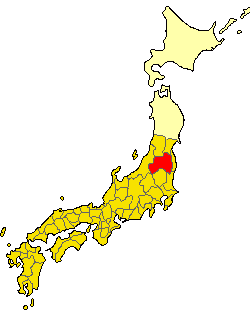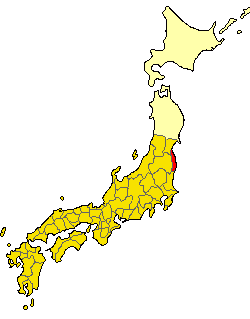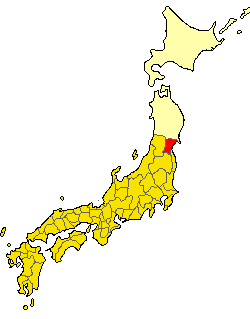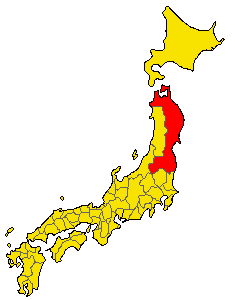Well, this comment section definitely took a turn for the worst.
It started off with Chinese users complaining about why their north-easternmost province on the border with Manchuria didn't have the same exact location density as central Korea or a Japan that's supposed to portray the Sengoku Jidai and extreme levels of political fragmentation, which has to be the most stand-offish and unproductive way to ask for more locations in China, an otherwise sensible demand.
It continued with a Western user who promptly attacked Paradox for "eurocentrism" and that East Asia was underdeveloped compared to Europe, even though Japan and Korea have comparable location densities with many parts of Europe, and then made the dreaded argument for basing location density on actual square kilometers: an absolutely terrible argument that, if anything, would have us be forced to reduce the amount of locations in both East Asia and Europe to make space for tens of thousands of location in Central Africa (you know how big that thing actually is in square kilometers once you get rid of map distortion, right?).
Finally, it reached a climax with what I can only describe as a full-blown rant by a Chinese user, incensed that Japan had... Accurate location density, for a fairly developed region in Eurasia that also featured massive political fragmentation. The only argument that made a lick of sense was the one on Hokkaido not needing that level of density, since it was outside of the Japanese state anyway and was inhabited my small Ainu tribes for the entirety of the game's timeframe, but the issue once again is that, rather than blame it on a honest fuck-up by someone who was put in charge of making the locations for Japan and then applied the rules for Feudal Japan onto what's today a Japanese island but back then was a barely inhabited frontier region, this had to be treated once again a direct insult to the entire nation of China, for whatever reason.
The guy goes as far as to say that the only reason Japan gets this level of attention at all is because anime and manga made it popular in the West, and otherwise the region was "a tiny corner on the edge of the world". Many of the arguments there, repeated over and over by the guy, got so egregiously wrong, biased and malicious that I just have to write a response here, even if it ends up getting me in trouble. It's no surprise that Chinese users are extremely hostile to Japan and sometimes Korea as well because of well known nationalist rivalries in East Asia, but I draw the line at people spreading blatant historical revisionism to fit their nationalist narrative without anyone properly calling that bad behaviour out.
First of all, it's crazy to hear Chinese people, of all people, talk about this and that state being "marginal backwaters" when referring to the entirety of Japan from the 14th to the 19th century. It plays directly into the stereotype of East Asian states being stuck in time, backward and irrelevant to a world history controlled by Europe, but I guess that this inaccurate stereotype becomes more appealing when turned against a neighbour state they dislike. Zeruosi doesn't seem to consider that the same exact arguments could very well be made to argue against China and against China receiving any more attention than it has already got, because that too was a nation that (by his admission) failed to challenge the growing European dominance in worldwide trade and naval power, it was a country that slowly shrank in relevance as the centuries went on, ultimately holding only on sheer massive size and natural resources. Indeed, as far as the European point of view goes, Chinese history for this period amounted to the country changing color and size slightly three times, and going from being ruled by foreign Mongolian goat herders to foreign Jurchen goat herders, who then proceeded to force the entire Chinese population to wear the dumbest haircut ever conceived by man for the next 300 years. And I'm pretty sure Manchuria in the early 1600s was also way smaller and weaker than Japan too. I even hear that by the early 19th century, within the scope of the game, the Chinese fleet was in such a state of disrepair that, when a large amount of pirates took over the southern seas, the Qing government had to beg the Portuguese and British for help with their navies.
This is what gets called a "colossal civilization", apparently. Purely for size of its population, but definitely not for its accomplishments.
India has the excuse of never having been a unified civilization and being constantly marked by political fragmentation in the subcontinent even when great empires ruled over it, so it makes sense that Turkish conquerors and later the British could manage to take over the place. What's China's excuse here though? Seems like a pretty big paper tiger all things considered. Can we really argue to waste so much time and effort in making China right when it was such a marginal non-entity in history? We can't reduce Japan's locations in any case, because the Sengoku Jidai is still a thing that needs to be represented even if we accept that all of East Asia was a marginal backwater of a region, but China doesn't have that. In fact, the less the locations in China, the quicker the area can change hands between various nomad conquerors.
You could even put it this way: to be clear from the start, China has historically been an isolationist backwater in world history. If anyone respectfully disagrees, please provide examples of China colonizing the New World, waging great wars with European powers, and becoming a global superpower. Unfortunately I simply don't recall any grand Ming fleet bombing London or Paris, nor Chinese trade monopolies in the Netherlands or the Caribbean. At best a one-time vanity fleet that brought giraffes from Africa before being rapidly dismissed. "The cruel truth of history has no place for fanboys", I think that's how someone else had put it.
This above is a very uncharitable reading of Chinese history. It's a highly biased interpretation of how things went. I wouldn't support it, at all.
For the same reason, I would argue against similarly reductive histories of Japan that some Chinese users here have promoted. Contrarily to the stereotypes of a closed country, Japan in this period had among the deepest contacts with Europe out of all East Asian nations, both diplomatically, with missions being sent from Japan to Rome and Spain, and even more so militarily, with Japanese warfare being revolutionized by the introduction of European muskets at Tanegashima, a kind of weapon used very effectively in the Imjin War too. Not only Japan was a country uniquely influenced by European contact in its military developments, but contact continued even in the era of the Sakoku laws: the Catholics were expelled, but the Dutch were allowed to maintain a port in Dejima, and through that port European culture was still allowed to come in controlled ways, bringing new ideas to the country. This is how Japan in the 18th century had access to European treaties on anatomy that greatly improved their medical knowledge. Socially and economically too, the Edo period was a period of growth and cultural refinement, one that was also decisive for Japan's later successes in the late 19th century. Because, indeed, the rapid industrialization of the Meiji era wasn't a freak accident that happened out of nowhere, it happened because it was built on top of the prosperity, urbanism and literacy that had grown in the whole Edo period, and without that foundation it would have been unlikely for the Meiji revolution to be as successfully as it did. Indeed, Japan was in a uniquely ideal position to kick off its rapid industrialization program, and that was thanks to the fact during the 18th century the country was a wealthy, dynamic and growing society, in spite of its nominal isolation from international commerce and its military that ceased developing after the Sengoku Jidai.
And it's really the other way around. Japan doesn't get particular attention because of anime and manga that are popular worldwide, but rather anime and manga are popular worldwide because they're a product of Japan's rapid industrialization, built off the prosperity of the Edo period, that allowed that country to export its cultural products, and be the first East Asian country to massively export its cultural goods to the rest of the world, before anyone else, which is all part of the history of why Japan is an interesting country in this period worth of particular attention. This was also helped by the fact that Japan has unique ties to the Western world since relations started in 1543, and Japan is really the East Asian country the West has had the most contacts and exchange with, so it's not surprising if it's the country whose history and culture are more popularly well known in the West. You could call Japan a legit backwater if we were talking pre-Heian Japan, and arguably even early Heian Japan (anything before the year 1000, really), when the country was still fresh from the introduction of Chinese government culture and Buddhism, but Muromachi to Edo Japan is some 500 years after that time.
To blame anime and manga of all things because you think China isn't portrayed correctly in some random European game reeks of insecurity and jealousy. Take your nationalist spats elsewhere, they're doing no good to the game, to yourself, they keep giving the Chinese community a really awful look and don't even seem to be reaching the Japanese folks you seem to want to piss off. There's barely any of them on the forums anyway.









































































